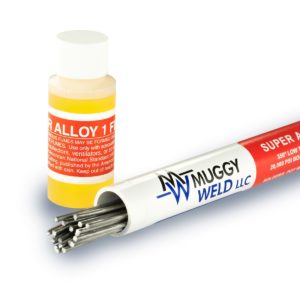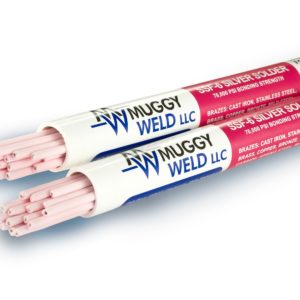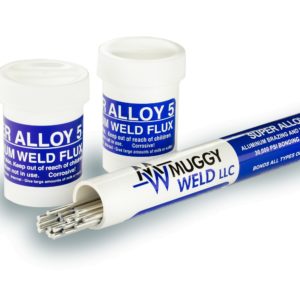How to Solder Brass to Brass with Silver Solder
Brass is a corrosion resistant gold-colored alloy comprised of copper and zinc. Its conductivity, durability and low melting point make it a desirable metal used in a variety of applications such as:
-
musical instruments
-
plumbing
-
bearings
-
ammunition casings
-
hose couplings
Muggy Weld carries two brazing solutions for brass soldering: Super Alloy 1 and SSF-6 Silver Solder. In this video, flux-coated SSF-6 is used to join two pieces of brass plates with an oxyacetylene torch.
Begin by pre-cleaning the brass. Next, broadly heat the base metal until it reaches a dull red color, then melt off and apply the SSF-6 flux. As you can see, the parent metal does not need to be bright red to flow like other silver solders.
For best adhesion, allow the flux to become watery before adding the filler rod. Be sure to flow out each deposit before adding more rod.
To fill gaps or larger holes use less heat. For thinner flow add slightly more heat.
Heat the back side a little bit, then go back to the front.
After completing the repair, Simply allow the part to air cool, and remove any residual flux with warm water and a wire brush.
1/8th inch of a rod was all the SSF-6 silver solder need to bond these brass plates through to the back side.
SSF-6 can also be used to join copper, silicone bronze, carbide, mild steel, stainless steel, inconel, cupronickel, cast iron, gold, spring steel, carbon moly, galvanized, chrome-moly, German steel, carbon steel, cast steel, manganese, silver or bronze–in any combination. The cadmium free, food grade material flows at 1150 degrees and requires no grinding or machining.
Note: Please observe all AWS Safety & Health Guidelines when using Muggy Weld products.



